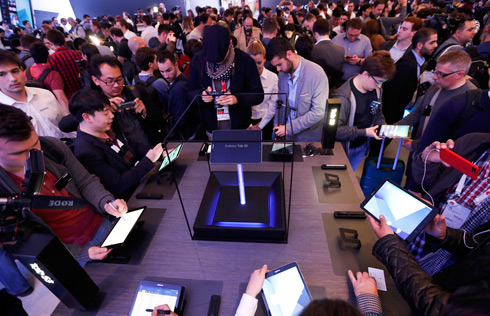Shopping app pursues discerning spenders in US
Marketers are being advised to tap into the demographics of affluent, tech-savvy Chinese Americans whose buying behavior reflects their cultural preferences. A mobile shopping-app company said it believes it knows how to reach this fast-growing group.
Silicon Valley-based startup Weee! said it is building a mobile commerce platform, bridging users to suppliers directly, by providing tailor-made products through social networks.
With the app, the users can connect with other like-minded customers in their neighborhoods. They can share product information and pre-order through local group buying leaders. The company then sources and delivers the products.
The company said it currently has hundreds of partners, including farms and wholesale suppliers. Weee! said it has experienced rapid growth since its founding in 2015 and its users exceed 120,000 and group leaders number more than 4,000 across the United States.
The most popular products are fresh vegetables and fruit, seafood and Chinese ethnic snacks and ingredients, said Larry Liu, founder and CEO.
For instance, free-range chicken is delivered to group leaders directly from the slaughterhouse without being frozen and live fish caught in Alaska can arrive in a customer's kitchen the next day, he said.
The company has received positive feedback from suppliers. "They think the business model is very cool," Liu said.
Chinese-Americans' dietary habits reflect the importance of food as a connection to cultural heritage. Chinese diets consist primarily of fresh and healthy options.
That echoes the findings by Nielson's latest Asian-American consumer report. The report, released in June 2016, found that Asian-Americans purchased 72 percent more fresh vegetables and 29 percent more fresh fruits than the population at large.
"Having lived in the US for over 10 years, I feel the Chinese community has long been underserved," said Liu. "It's hard to get what we want in mainstream supermarkets and the goods in Chinese supermarkets are often disappointing."
He said the reason for the Chinese community being underserved was because it was a small market.
But the millions of Chinese-Americans represented massive spending power and social networking apps such as WeChat bring them together, he added.
The Chinese are the most populous group of Asian-Americans and the wealthiest on a per-household basis. In 2015, the median household income of Chinese-Americans was $69,586, compared with $53,657 for the general population, according to a survey by the US Census Bureau.
Asian-American buying power in the US is currently $825 billion, a number expected to increase to $1.1 trillion by 2020, the Nielson report said.
Calling it a "once-in-every-20-years opportunity", Liu said his platform was a way around the bottleneck of traditional e-commerce companies.
Liu said that in the internet era, e-commerce brings a sea of choice to consumers, while in the era of mobile and social messaging, the group-buying app, based on recommendations of friends and neighbors, can approach customers in a more targeted manner.
The company said its current monthly sales are $5 million and it has secured $9 million from investors, including Jack Smith, co-founder of Hotmail.
The app also works in Canada and is expected to arrive in Australia and the United Kingdom soon.























